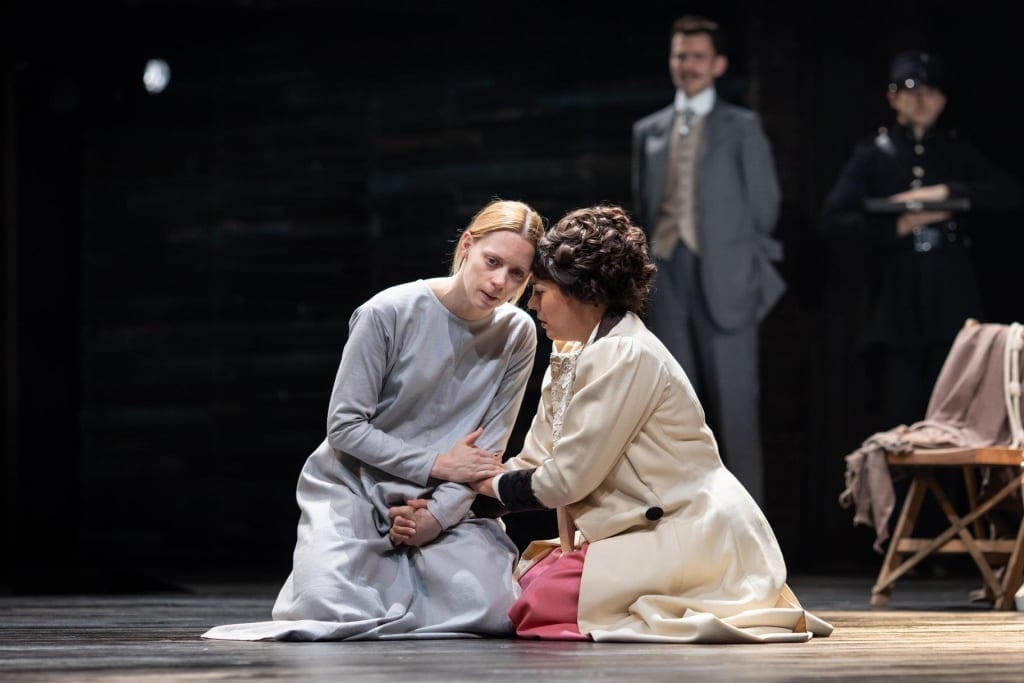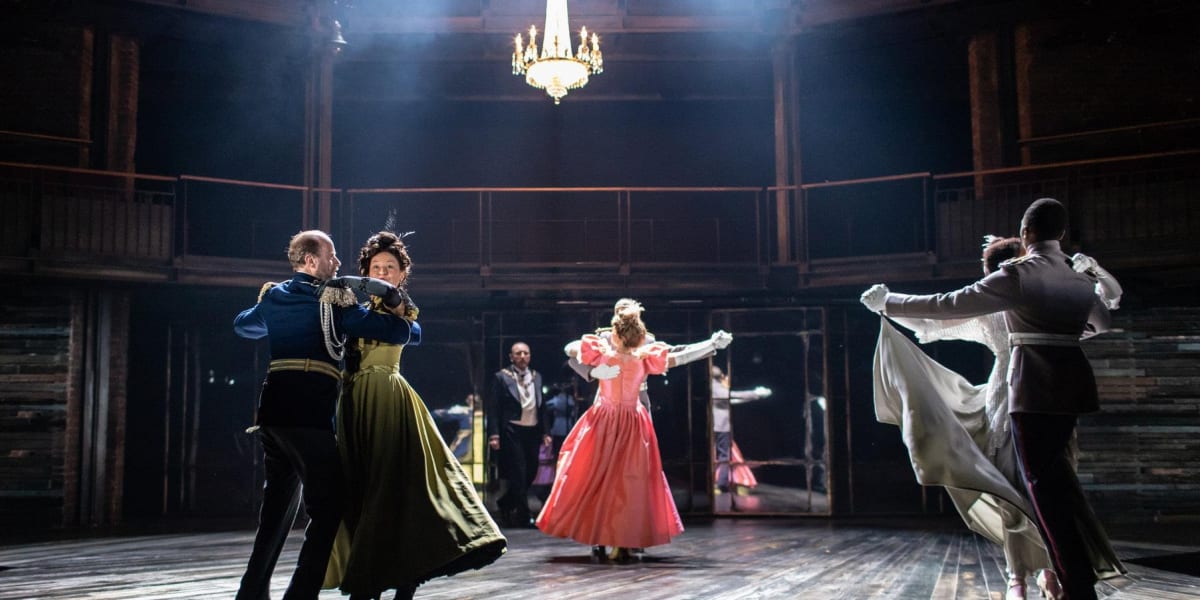Greg Doran has directed a clean and riveting production of Shakespeare’s Measure for Measure. It is a clear and easily accessible production of a play that is thought to be difficult. Doran’s response to the text and his understanding of its complexities, respect for its ambiguities and responsiveness to its outrageous bouts of humour both broad and subtle are deeply satisfying.
The setting of the story has been transferred from Vienna in the 16th century to Vienna at the beginning of the 20th century. It is the final days of the Hapsburg Empire, which looks successful and stable but which is decaying beneath its glittering surface and romantic waltzes. This gives Paul Englishby a chance to write some excellent music evoking that period. It is also the era when Freud and his colleagues are studying the workings of the unconscious mind and exposing the complexities of our psychology. The story of this play resonates strongly within this setting.
As the Duke, Antony Byrne presents a bluff surface and yet hints at the darker or more confused undercurrents of his psyche. Sandy Grierson is an entirely believable Angelo, and the scene in which he soliloquizes about his newly discovered lust for Isabella is very strongly done. The encounter between him and Isabella when he proposes that he could spare her brother’s life if she sleeps with him has a quiet power and a touch of sleaziness that are memorable and one can sense the frustration of the situation for both characters. Grierson is somehow both understandable and slimy without becoming a simply detestable villain.
The cast works together beautifully as an ensemble. I liked the casting of Graeme Brookes as the Bawd in drag, Mistress Overdone. In this “me too” and LGBTQ era, this particular Shakespeare play is remarkably easy to interpret in contemporary ways. David Ajao steals all his scenes as Pompey the pimp with energy and cheekiness. The jail sequences are scary-delightful. Patrick Brennan as Abhorson and Graeme Brookes, his time as as Barnardine, are brilliant.

Again, given the update, the casting of Claire Price as Escalus and Amanda Harris as the provost works completely. The whole plot strand about the brothel, the scenes in the jail and the enforcement of chastity laws throughout Vienna make a superb subplot that sets off the Isabella and Angelo story as well as questioning the integrity of the Duke’s decision to go incognito and dump his sins of omission on Angelo. Sophie Khan Levy is a particularly appealing and sympathetic Mariana. And Joseph Arkely gives a memorable turn as Lucio in his natty suit and with his man-about-town ways.
This play is not done often enough and, to my mind, not treasured enough. Its ambiguities are deliberate and at the core of its meaning; its structure and theatre craft are the best; but people are made uncomfortable by it – and that, I think, is the point. You can wonder at the end how a marriage between Isabella and the Duke could come off let alone be happy ever after; or you can play it as if this is true love. And what about Angelo and Mariana? Lucio and his doxy? Greg Doran very much goes for the complex, ambiguous approach and the last moments when the Duke and Isabella are alone on stage retrospectively give the whole evening its focus.

